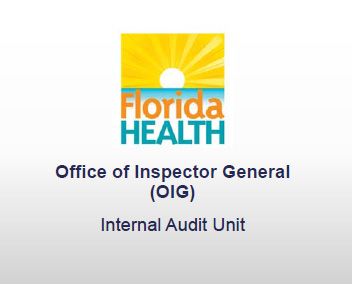Healthcare Audits in Florida
The healthcare industry uses numerous types of audits to assess, evaluate and improve patient care. Medical professionals measure current practices against established standards on a regular basis. In addition to internal audits that observe care quality, other internal audits are performed in most medical practices. Medical staff must perform internal audits which examine financial and compliance regulations. Basically, internal audits protect organizations from future external audits.
External Audits
Healthcare is a highly regulated industry that receives federal monies. Any time an organization is paid by the federal government, there are strict guidelines that must be followed. In healthcare, any practice that receives payments from Medicare or Medicaid must be extra vigilant in billing practices. If your practice or organization receives a notice of a suspected “overpayment” on a Medicare or Medicaid account, contact an experienced attorney immediately. No organization wants to be placed on prepayment review and the appeals process for these cases is complex, lengthy and expensive.
Prepayment Review
Numerous healthcare professionals and organizations have been placed on prepayment review because they failed to challenge an alleged “overpayment” claim from Medicare or Medicaid. This process is a nightmare for any organization. Once on prepayment review, providers must submit extra documentation for every Medicare and Medicaid claim. Each new claim is audited by a government agency. This length process slows reimbursement time. Also, the auditing agency often requests more supporting documentation. So, the healthcare practice spends more time organizing billing documents and must wait for months to get paid. Consequently, hiring an experienced healthcare attorney as soon as the overpayment notice is received is critical to avoid this nightmare.
Companies Hired by the Government to Investigate Claims
The federal government hires Recovery Audit Contractors (RACs) to locate Medicare and Medicaid overpayment and underpayment. The RACs are paid more when they locate overpayments; so, they tend to be quite aggressive and intrusive. They find overpayments more often than underpayments. Medicare Administrative Contractors (MACs) are also paid by the federal government to investigate billing and coding errors. If the MAC locates a provider with high error rates they have the authority to place the organization on post-payment or prepayment review. There are numerous other contractors that investigate claims filed by medical practices.

Medicare Appeals Process
The Medicare Appeals Process has four levels. It doesn’t matter which contractor performed an audit, the appeals process remains the same for all audits.
- Redetermination – A provider has 120 days to file a request redetermination. This 120 day period begins from the date the practice receives the letter. The redetermination is decided by the MAC. However, there is a 30 day limit for a post-payment claim.
- Reconsideration – If the first level of appeal did not help then the provider may file for reconsideration. Any new evidence or documentation must be submitted at this stage. It may not be entered after level two. Once someone receives the redetermination decision they have 180 calendar days to file for reconsideration. This second level of appeal is conducted by a Qualified Independent Contractor (QIC).
- Administrative Law Judge (ALJ) Hearing – The third appeal level a hearing by an administrative judge. To obtain this type of hearing, a written request must be filed within 60 days from receiving the reconsideration notice. This hearing may be held by phone, in a courtroom, or by video chat.
- Medicare Appeals Council (MAC) – For a MAC review the provider must file a written request within 60 days of receiving the AJL decision. The MAC may uphold the AJL decision, dismiss the decision, or may request another hearing.
The appeals process is quiet complicated and requires legal assistance. Of course, the best advice is to avoid this process altogether by hiring a healthcare attorney immediately when an “alleged” overpayment notice is received.